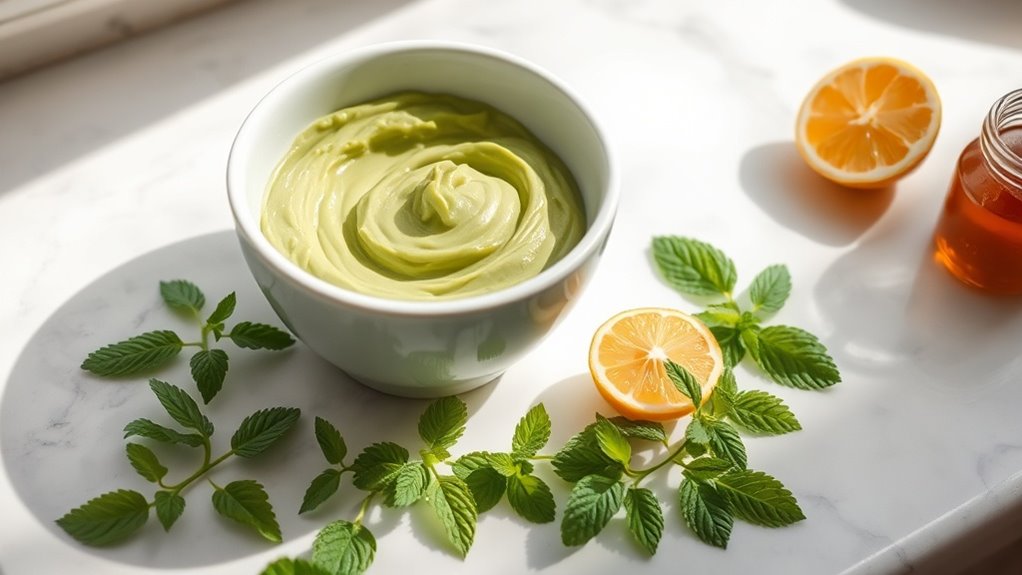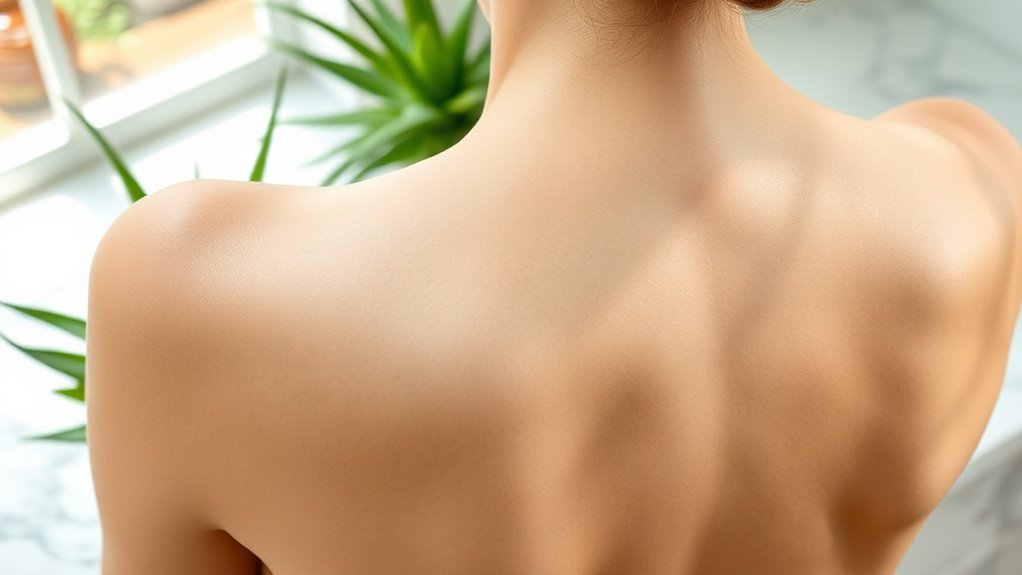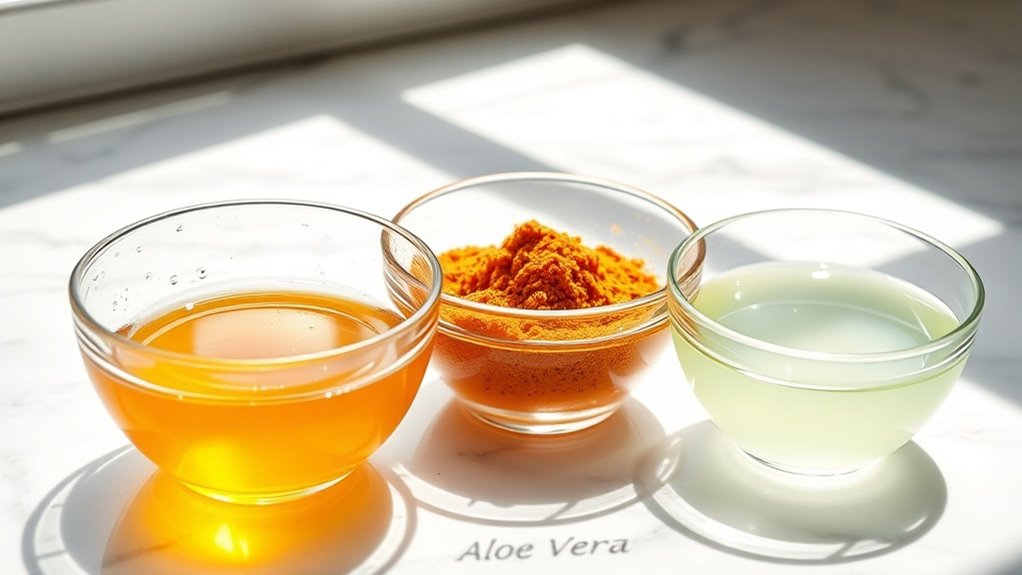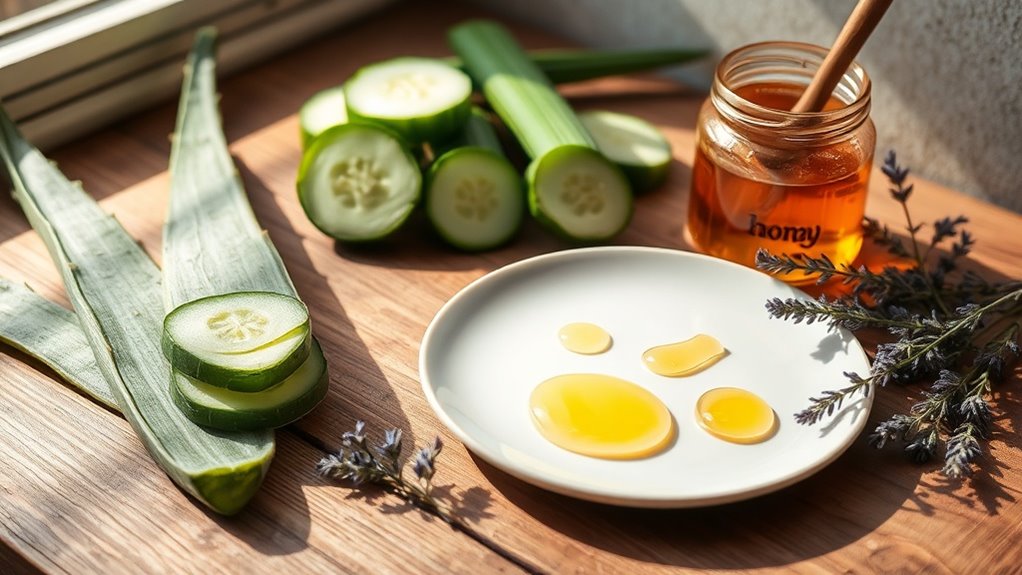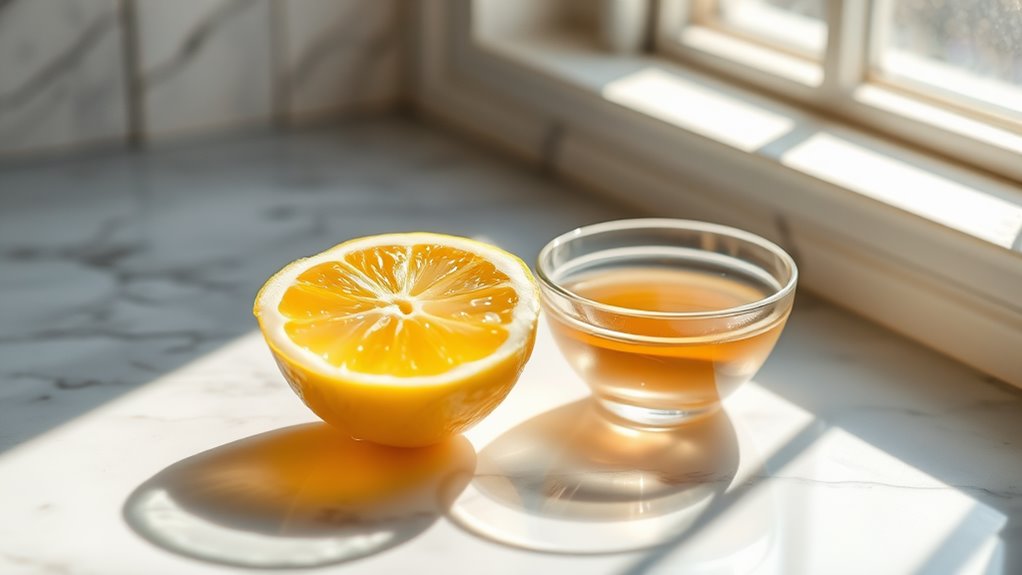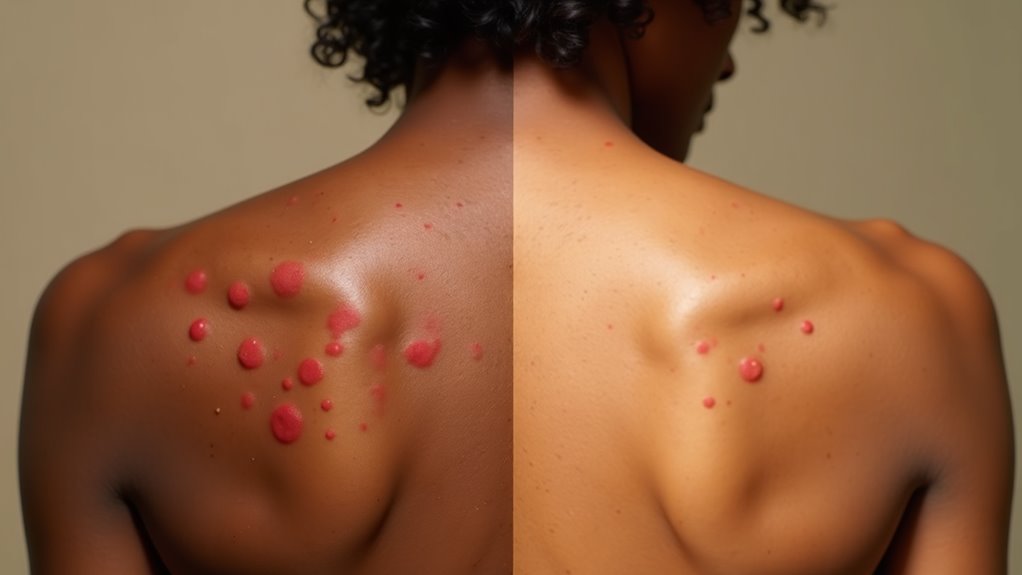Natural Acne Remedies That Clear Up Breakouts
You can effectively clear acne breakouts using natural remedies that target excess oil, bacteria, and inflammation. Tea tree oil provides antimicrobial benefits, while honey and turmeric masks reduce redness. Combine these topical treatments with a diet rich in omega-3s and zinc, while eliminating high-glycemic foods. Establish consistent cleansing routines and stress management techniques for optimal results. Discover how these evidence-based solutions work together to transform your skin.
Understanding What Causes Acne Breakouts
Why do some people struggle with persistent acne while others maintain clear skin? The answer lies in several key factors: excess sebum production, bacterial growth, inflammation, and hormonal fluctuations.
When your sebaceous glands produce too much oil, it combines with dead skin cells to clog pores. P. acnes bacteria then thrive in these blocked follicles, triggering inflammation. This cycle is often exacerbated by hormonal fluctuations that lead to increased oil production.
While you might search for pimple remedies overnight, understanding these root causes is essential.
Genetics influence your skin’s oil production, while stress, diet, and hormones can trigger breakouts. Certain medications, cosmetics, and environmental factors may also contribute to acne formation.
Essential Oils and Plant-Based Solutions
While synthetic treatments dominate the market, essential oils and plant-based remedies offer natural alternatives for managing acne.
Tea tree oil’s antimicrobial properties help combat P. acnes bacteria, while lavender oil reduces inflammation and redness. You’ll find rosemary oil effective at regulating sebum production.
Plant extracts like aloe vera provide soothing benefits and accelerate healing. Green tea’s polyphenols decrease sebum production and fight inflammation. Neem leaf extract exhibits potent antibacterial properties. Recent studies have shown that tea tree oil can lead to visible results typically within 24-48 hours when applied correctly.
When using these solutions, it’s crucial to dilute essential oils properly and perform patch tests to prevent skin irritation.
DIY Face Masks for Clear Skin
Creating effective face masks at home requires combining specific ingredients that target acne-causing bacteria and excess oil production. Research shows that natural ingredients can effectively combat breakouts while maintaining skin barrier function.
-
Mix 1 tablespoon of raw honey with 1/2 teaspoon of turmeric powder for its antimicrobial and anti-inflammatory properties.
-
Combine bentonite clay with apple cider vinegar to create a detoxifying mask that draws out impurities.
-
Blend 1/2 ripe avocado with 1 tablespoon of plain yogurt for a nourishing treatment rich in lactic acid and healthy fats.
These masks harness the power of natural ingredients to help reduce inflammation and prevent new breakouts. Apply these masks to clean skin for 15-20 minutes, then rinse thoroughly with lukewarm water.
Dietary Changes That Combat Acne
Research has consistently demonstrated that dietary modifications can significantly impact skin health and acne severity through hormonal regulation and inflammation control.
You’ll want to eliminate high-glycemic foods like white bread and sugary snacks, as they spike insulin levels and trigger excess sebum production. Instead, focus on consuming omega-3 rich foods such as salmon and chia seeds, which reduce inflammation.
Adding zinc-rich foods like pumpkin seeds and lean meats supports skin healing, while antioxidant-packed vegetables protect against oxidative stress. Probiotics from yogurt and fermented foods help balance your gut microbiome, directly affecting skin health through the gut-skin axis.
Daily Skincare Habits for Prevention
To effectively prevent acne breakouts, you’ll need to establish consistent daily skincare habits that protect your skin’s natural barrier and regulate sebum production. Research shows that proper skincare routines can significantly reduce acne occurrence and severity.
-
Cleanse your face twice daily with a gentle, pH-balanced cleanser that removes excess oil without stripping your skin’s protective barrier.
-
Apply non-comedogenic moisturizer immediately after cleansing to maintain optimal hydration levels.
-
Use broad-spectrum sunscreen with SPF 30+ during the day, as UV exposure can trigger inflammation and increase oil production. Additionally, incorporating natural face exfoliator into your weekly routine can help remove dead skin cells and promote a brighter complexion.
These evidence-based practices help maintain skin homeostasis and prevent bacterial proliferation that leads to breakouts.
Stress Management and Lifestyle Adjustments
While many people focus solely on topical treatments, managing stress levels and making strategic lifestyle changes play crucial roles in controlling acne breakouts.
You’ll need to implement stress-reduction techniques like meditation, deep breathing, or yoga, as cortisol spikes can trigger excess sebum production. Getting 7-9 hours of quality sleep helps regulate hormones that affect skin health. Regular exercise increases blood circulation and reduces inflammation, but you must shower immediately after workouts to prevent sweat-trapped bacteria. Additionally, avoid touching your face throughout the day, change pillowcases weekly, and clean your phone screen daily to minimize bacterial transfer. Incorporating nutritional deficiencies into your diet can also support overall skin health and reduce breakouts.

